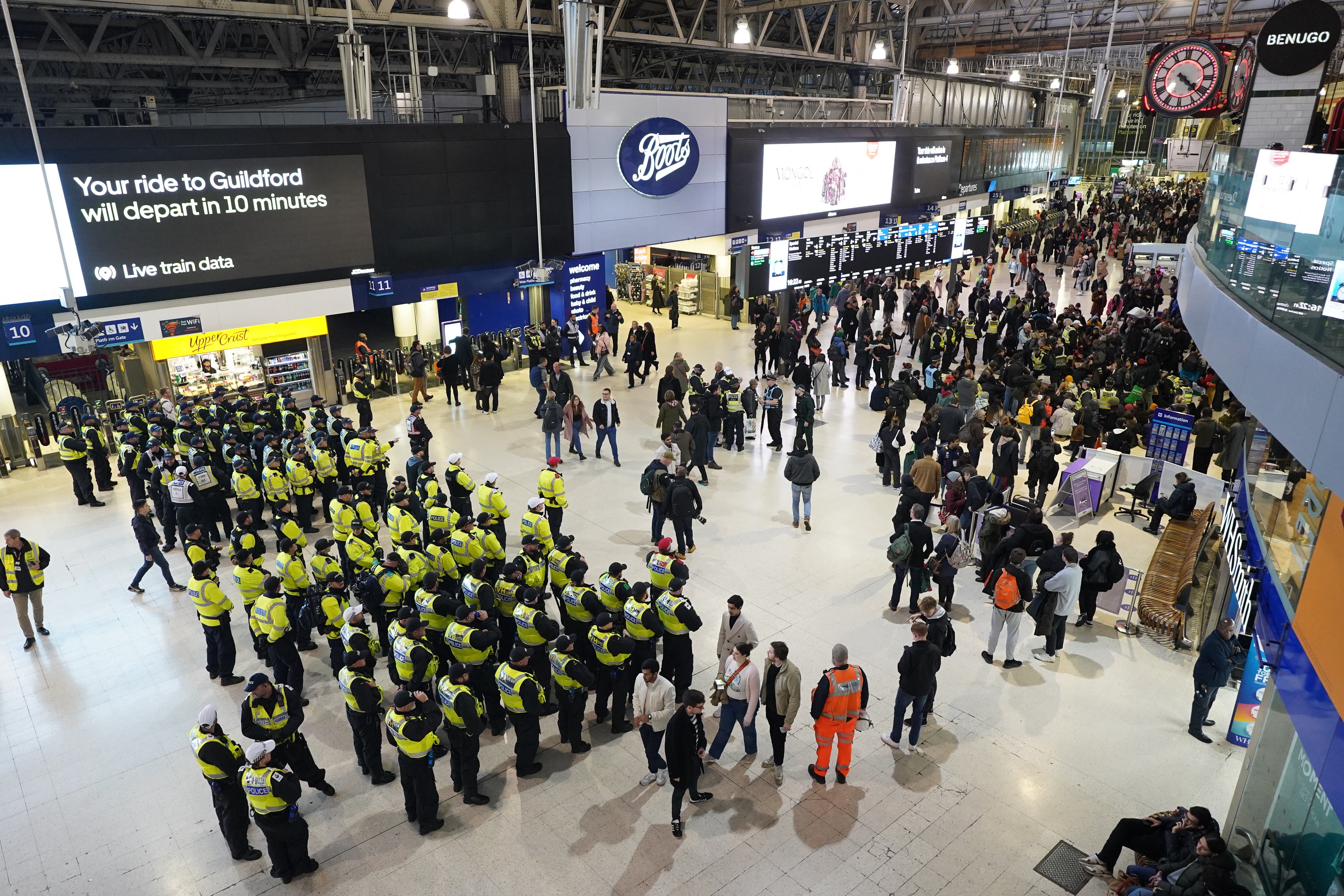Government unveils new protest laws to ‘crack down on dangerous disorder’
Setting off flares and covering faces could be banned under the proposed new rules.

Protesters who climb over war memorials or try to hide their identity could face jail under Government plans to change the law.
Police in England and Wales will be given powers to arrest protesters who cover their face in a bid to avoid prosecution, while people who scale national monuments could face a three-month prison sentence and a £1,000 fine, as part of the proposals.
The measures – which will be added to the Criminal Justice Bill currently being considered by Parliament – will also make it illegal to carry flares and other pyrotechnics at protests amid efforts to “crack down on dangerous disorder”, according to the Home Office.
The right to protest is paramount in our county, but taking flares to marches to cause damage and disruption is not protest, it is dangerous
The right to protest is “no longer an excuse for certain public order offences”, the department said as it announced the plans on Thursday.
But campaigners have branded the measures a “threat to everybody’s right to protest”.
The move comes as police chiefs warned some protesters were “using face coverings to conceal their identities, not only to intimidate the law-abiding majority, but also avoid criminal convictions”.
Officers already have the power to ask people to remove face coverings at designated protests – where forces believe crimes are likely to occur.
But the new offence will allow police to arrest protesters who disregard their orders, with those who flout the rules facing a month behind bars and a £1,000 fine.
Under the reforms, possession of flares, fireworks and any other pyrotechnics – which the Home Office said had recently posed “significant risk of injury” and had been fired at police officers – at public processions and assemblies for protest will be made illegal, with perpetrators also facing a £1,000 fine.
Protesters will also no longer be able to cite the right to protest as a reasonable excuse to get away with “disruptive” offences, such as blocking roads, the department added.
Home Secretary James Cleverly said: “Recent protests have seen a small minority dedicated to causing damage and intimidating the law-abiding majority.
“The right to protest is paramount in our county, but taking flares to marches to cause damage and disruption is not protest, it is dangerous.
“That is why we are giving police the powers to prevent any of this criminality on our streets.”
Essex Police chief constable BJ Harrington, who leads the National Police Chiefs’ Council’s work on public order, welcomed the plans, adding that it will make sure officers “have the powers that we need to get balance right between the rights of those who wish to protest, and those impacted by them”.
The use of flares and pyrotechnics at protests is “rare” but “they are still extremely dangerous”, he said, adding: “Safety is our number one concern when policing these events, and the effective banning of these items during protests can only help in our mission to ensure that they take place without anyone coming to any harm.”
This is an outrageous attempt to clamp down on our fundamental right to stand up for what we believe in
He stressed the powers would be used “when appropriate, proportionate, and necessary to achieve policing objectives”, but insisted police were not “anti-protest.”
“There is a difference between protest and criminal activism, and we are committed to responding quickly and effectively to activists who deliberately disrupt people’s lives with reckless and criminal acts,” he said.
Akiko Hart, director of human rights group Liberty, said: “These new proposed anti-protest measures are a massive overreach by the Government and a threat to everybody’s right to protest.
“This is an outrageous attempt to clamp down on our fundamental right to stand up for what we believe in.
“Bringing in these powers put people at greater risk of being criminalised for exercising their right to protest – including disabled people, who in some situations have only felt comfortable protesting in public when wearing face coverings.
“It is extremely concerning that the Government is trying to impose even more conditions on not only when people can protest, but how they protest too.
“We all have the right to make our voices heard on issues that matter to us, but this Government has continually made it harder for us to do that.
“The Government must reverse this decision and drop these anti-protest and anti-democratic proposals.”
Liberty is embroiled in a legal battle with the Government over previously introduced “anti-protest powers”, with a High Court trial due to take place later this month, the group said.
The proposals will be introduced as amendments at the Bill’s report stage in the Commons.
Bookmark popover
Removed from bookmarks